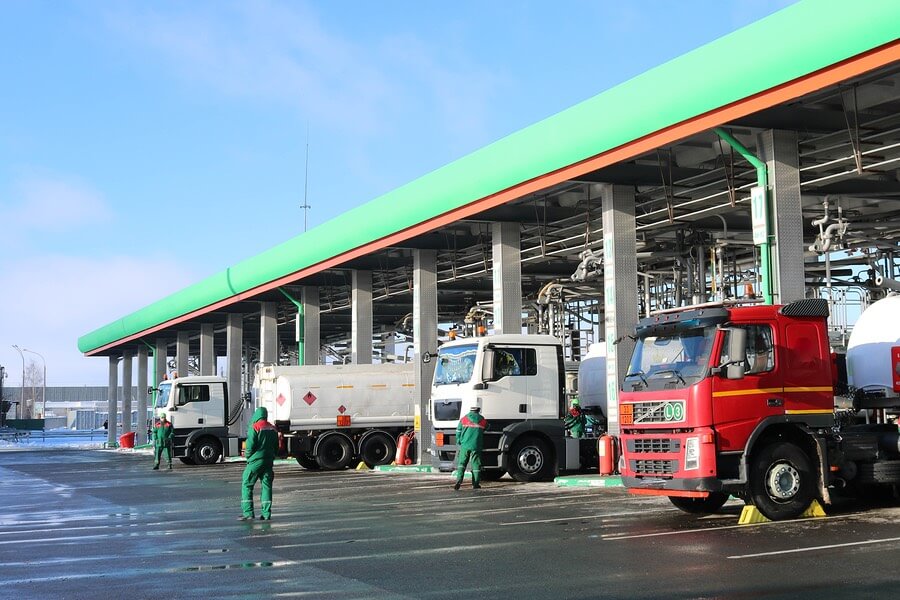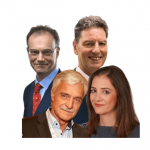If an FMCG organisation has pledged to save 30% of their CO2 emissions by 2030, they will take a close look at their entire organization and start saving everywhere they possibly can. They will ask their suppliers to make all sorts of small incremental changes to both their businesses and their processes, and those who are not able to accommodate those changes will be left behind.
A walk in the park
When I started my company to transform operational excellence in the road freight industry, I thought it would be easy. This is an industry where fuel represents circa 30% of operational costs, and even 1% saved can make a dramatic difference to the bottom line. With the introduction of the Euro VI engine in 2012, which marked an end to EU’s emission management scheme for heavy commercial vehicles, operators had lost the option of investing in newer assets as an obvious means to increase fuel efficiency. Managing fuel consumption through better operational excellence was a hot topic and has until now been a difficult area to deliver results because of imprecise tools and an intensely time-consuming process. But the driver shortage issue experienced by many companies around the time I was ready to revolutionize road freight with new operational excellence tools, saw industry shift its focus away from fuel into truck-fill and developing technologies like TMS systems.
In my years with Volkswagen Group I was regularly confronted by the lack of a credible, context-aware fuel benchmark in the road freight industry. Such a benchmark would solve a lot of difficult problems the industry had not been able to solve before. Examples are comparison of operational excellence across fleets, measurement of how much can be saved on each individual truck when investing in new low-rolling-resistance tyres, spoilers, skirts, etc, optimization of fleet composition, and sharing of cost savings when performing platooning. Using traditional descriptive analytics, the error rate when creating such benchmarks was around 20-25% which of course renders them useless. But, by using the newest methods in machine learning, we can get the error rate down to below 3%. This brings new hope and I am excited with the results we have with some companies who are already dipping their toes into the water.
No magical solution
But. There is no magical solution. In order to accommodate the changes that we will be required to make by science / consumers / media / politicians / shippers / …, the road freight industry and the logistics industry may have to consider that there is no such thing as a ‘plug and play solution’.
Things are moving very fast. In the last quarter of 2019, we saw shippers, transport companies, forwarders, manufacturers, and others especially in B2C markets looking to understand how they could optimize CO2 efficiency throughout their supply chains. The Fashion Pact (250+ brands working on climate, biodiversity and oceans) is growing, and companies like Nestlé, Unilever and Cargill intend to create greater business value by adopting initiatives like triple bottom line accounting to evaluate social, environmental and financial performance. This trend is likely to grow and thrive in 2020, enhanced by customers, shareholders, political pressure, media attention and supported by tech savvy investors looking for the next big thing.
We humans have become quite optimistic with regards to technology, and furthermore, we have become used to being able to throw money at a problem. Since the saving of fuel through better operational excellence is difficult and time-consuming, we hope that “technology will save us in the shape of new hardware (electric trucks, hydrogen)”. But what we see is that the solution will be found in the combination of a myriad of small or mid-sized measures. Fuel will remain a key component in years to come because the infrastructure is far from ready to let us switch away from fossil fuels.
We ask ourselves what to do next.
A main focus for digital change in the industry has been ETA-calculations where both LSPs and shippers were active. In contracts shippers often include CO2 reporting, but this has not always been enforced: an accelerating focus on emissions means shippers will become more rigid in holding up claims because if an organisation has pledged to save 30% of their emissions by 2030, they will have to take a close look at their entire organization and start saving everywhere they possibly can. This means that suppliers will be asked to make all sorts of small incremental changes to both their businesses and their processes.
Failure is learning
One way to do this is to work with start-ups, NGOs and tech-companies to perform rapid testing of solutions. This enables risk-minimized, cost-efficient, incremental experimentation and testing, meaning that we set aside sequential approaches to innovation and R&D and work on several small projects iteratively so that we can fail in a controlled manner. Everywhere there are examples of leading companies experimenting outside core processes (without using the brand), using failures as learning to bring them closer to their objectives.
Startups are flexible, fast, can attract digital talent and are often relatively more cost-effective. At Tracks, our best pilot customers come to us with a clear brief and objectives (assumptions they need to test), along with cut-off criteria which terminate the agreement if pre-agreed target are not met. Start-ups must ensure that they work independently without taking up scarce time and resources from their co-operation partners and in return they receive experience, first customers and knowledge about the market in a clear win-win deal.
It’s down to our processes
Supply chain has become a data game. We are blessed in logistics to have been digitised early on: data is available. But digitization of bad processes leaves us with …. good old bad processes.
Industry needs to go through a digitalization process, where everything – every single little process step – is re-evaluated. And since change is painful, we have witnessed procrastination over the last years. This is why I see the climate discussion as a blessing in disguise for the European logistics industry. Not only has urgency brought it to a point where something will be done, but if the industry is lucky some of the costs will be carried by the shippers and the customers. If we’re unlucky, we will miss the boat and the industry will pay the whole bill in form of fines, taxes and, worst case, closures.
My sincere hope for 2020 is that this will be a year where the logistics industry embraces current changes as an opportunity to re-invent their processes through clever, risk-minimized experiments, preparing for a future where the quickest (not necessarily the biggest) come out as the winner.
Jakob Muus can be contacted Tracks at [email protected]








